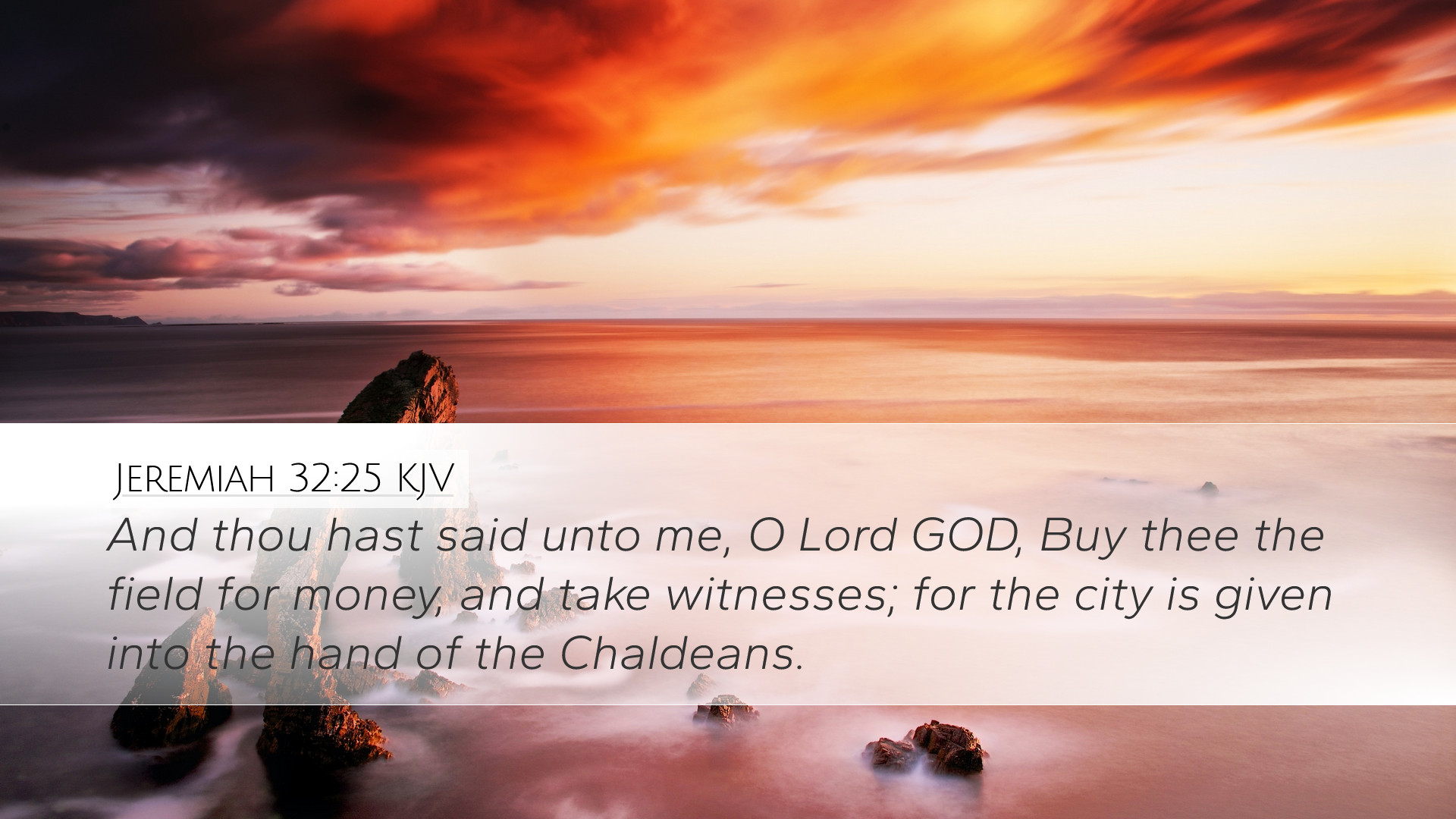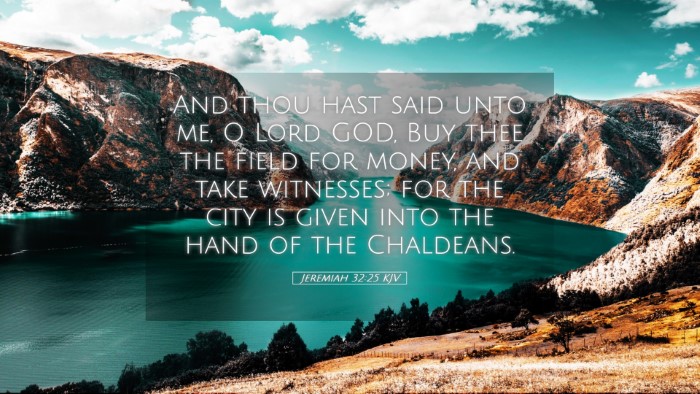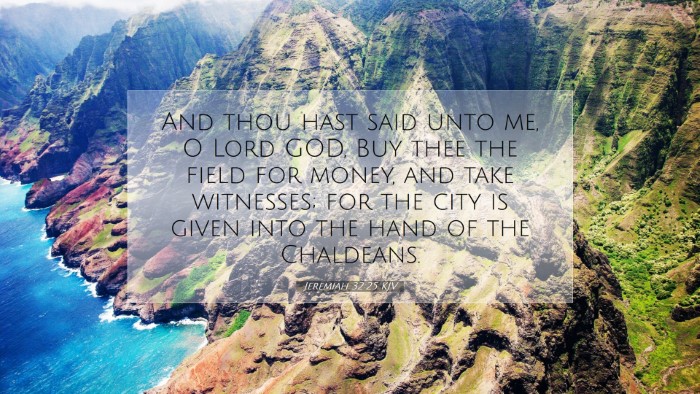Commentary on Jeremiah 32:25
Jeremiah 32:25 states, "And you have said to me, O Lord God, Buy the field for money, and take witnesses; for the city is given into the hand of the Chaldeans." This verse captures a pivotal moment in the Book of Jeremiah, where the prophet's actions and words reflect his profound faith in God's promises amidst dire circumstances.
Contextual Analysis
The backdrop of this verse lies within the siege of Jerusalem by the Babylonians. Jeremiah, under divine instruction, purchases a field in Anathoth, symbolizing hope and restoration. This purchase is not merely a practical legal transaction; it is a prophetic act of faith, illustrating God's enduring promise to restore Israel despite impending judgment.
Theological Significance
Jeremiah’s directive to buy a field serves multiple theological purposes:
- Faith in God's Promises: Despite the looming Babylonian invasion, God instructs Jeremiah to secure a plot of land, indicating that the people's future is still secure in Yahweh's plans.
- Symbol of Hope: The acquisition signifies hope for Israel's future. God reaffirms that there will be a restoration leading to a return from exile.
- Judgment and Restoration: While judgment is imminent, it is juxtaposed with the promise of restoration, illustrating God's character as both just and merciful.
Commentary Insights
Matthew Henry
Matthew Henry emphasizes that Jeremiah's purchase of the field is a profound act of faith. He notes that in a time of calamity, believing God's promise brings hope to the soul. Henry states, "He made this purchase with a firm assurance that it should not be long before the land should be inhabited again." This reflects a core tenet of faith — trusting in God's future fulfillment despite present difficulties.
Albert Barnes
Albert Barnes expounds on the public nature of this transaction. He argues that Jeremiah’s act was public and deliberate, intended to signal to the people of Israel that their situation was not hopeless. He writes, "The buying of the field was an act that testified to their future restoration, establishing a legal claim to their inheritance." This stands as a declaration that God’s covenant with Israel encompasses tangible realities, beyond spiritual abstractions.
Adam Clarke
Adam Clarke provides a historical perspective, noting that Jeremiah's actions were a testimony of faith in a time where despair was pervasive. Clarke comments, "Jeremiah was obeying God, fully aware of the futility of such an acquisition in the eyes of his contemporaries." Despite societal mockery, the prophet views the transaction through the lens of divine promise and covenant faithfulness, reinforcing the notion that our obedience to God’s instruction might not always align with worldly wisdom but aligns with God's redemptive plans.
Practical Applications
This verse and its commentary can serve various practical applications for pastors, students, and theologians:
- Faithfulness in Trials: Jeremiah's action inspires believers to remain faithful in their commitment to God, showcasing a profound trust in His ultimate plans during trials.
- Prophetic Symbolism: The verse invites exploration of the prophetic dimensions of faith actions today, encouraging communities to act in faith even when circumstances seem dire.
- Understanding God’s Character: The interplay of judgment and hope in this passage reveals the inexorable nature of God's covenant love, prompting deeper theological reflection and teaching.
Conclusion
Jeremiah 32:25 serves as a significant reminder of God’s unwavering faithfulness. The commentary of this verse echoes the reality of human uncertainty and divine assurance. As believers contemplate this passage, they are encouraged to lay hold of God’s promises and boldly act in faith, regardless of the circumstances surrounding them. The insights from Matthew Henry, Albert Barnes, and Adam Clarke provide a rich tapestry of understanding that fortifies the reader's faith and understanding of God's unchangeable nature amid life's storms.


